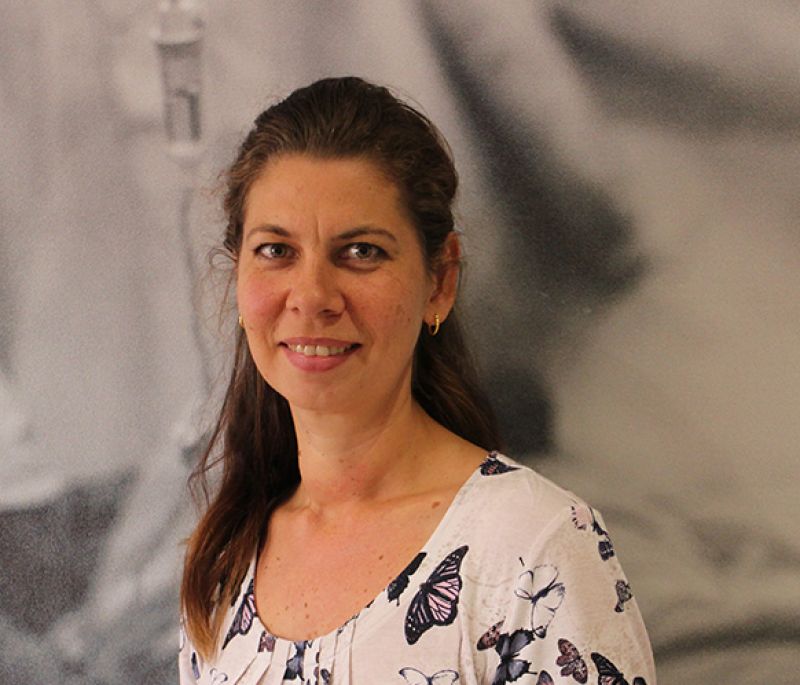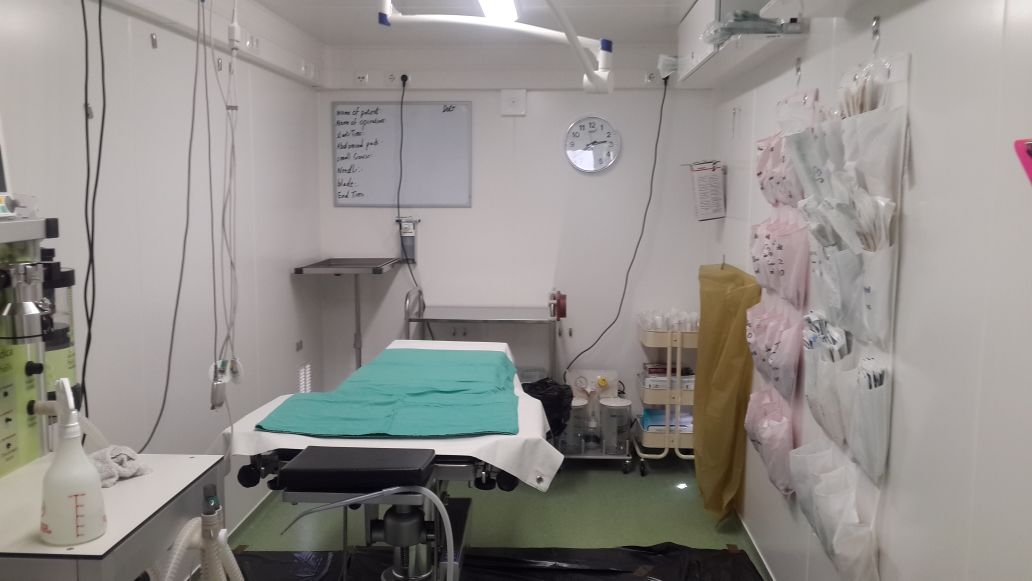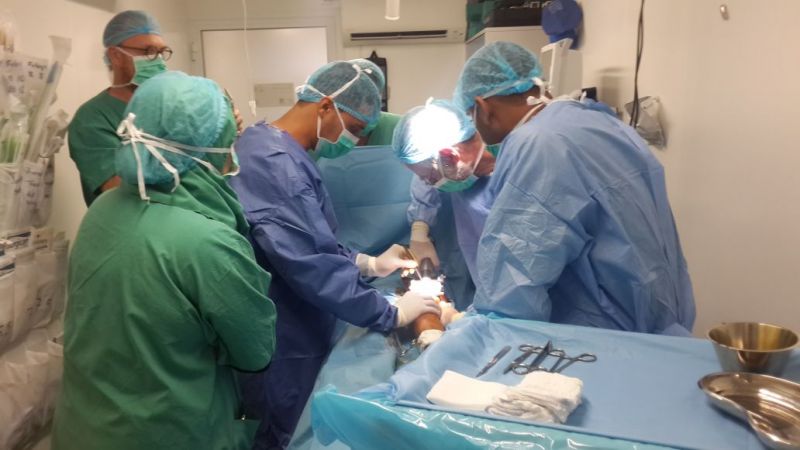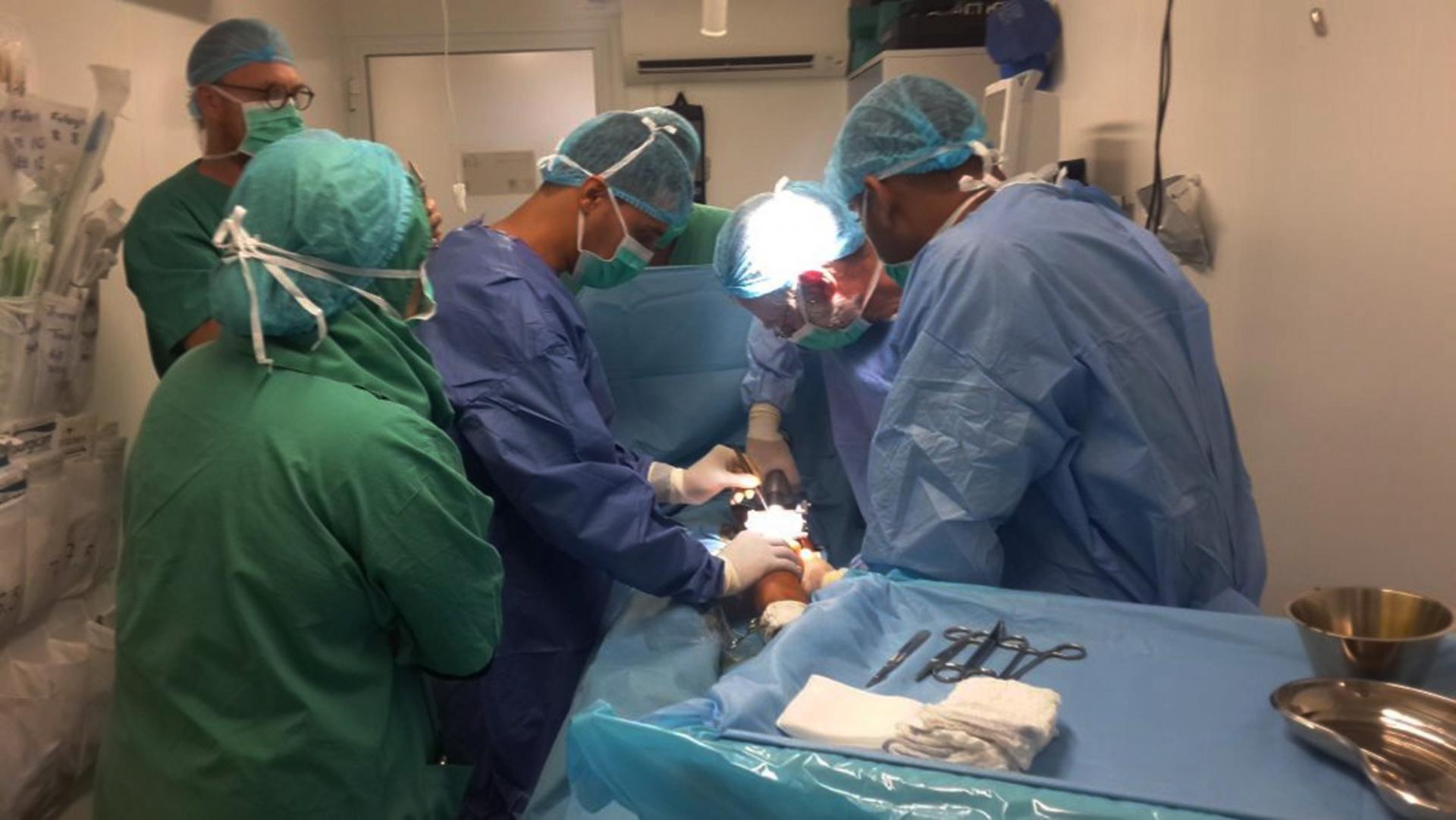Operating theatre nurse Jonine Lotter shares her experience treating wounded patients in MSF’s hospital on wheels in Mosul, Iraq.

The Mobile Unit Surgical Trailer (MUST) is MSF’s fully equipped hospital on wheels.
It can be trucked in and set up anywhere that medical action is needed. In 2017, our teams put up the MUST near the battle frontlines in Mosul, Iraq to provide emergency medical care to thousands of people fleeing formerly besieged areas.
South African operating theatre nurse Jonine Lotter spent 2 months in Mosul. She describes what it was like working in the MUST:
What is the MUST?
The MUST is essentially made up of shipping containers on wheels. In Iraq, the MUST contained a theatre, recovery room, and sterilisation unit. It’s built in a standard size and arrives just as it is.
You have to transform it into what you need it for – for example, an operating theatre was our main requirement in Iraq. The idea is to have everything on one trailer, that you then set up, in order to have a whole functional hospital where you need it
And it’s quicker to put up these types of containers than to try and build a hospital out of bricks.
What is it like working in the MUST?
The OT in the MUST is quite narrow, so there isn’t much room to move. There’s at most six people inside with a patient: anaesthetist, anaesthetist assistant, surgeon, sometimes a surgeon’s assistant, circulating nurse and an OT nurse (me). Everyone has to stay in position throughout the surgery.
In war surgery situations we do many laparotomies (where you cut a patient’s abdomen, usually to retrieve bullets after a gunshot); leg amputations; and attend to patients who need shrapnel removed from their bodies.
Surgeries last between 1 -2.5 hours in the MUST because we need to work much faster than normal. We only do lifesaving operations. Many other patients are waiting, so we can’t take 5 hours just for one surgery.
We do what we have to – remove the bullet, repair the damage, and then move to the next patient.

Talk us through doing a surgery in the MUST
Doing a surgery in the MUST is not that different to if you were working in an OT in Cape Town or anywhere else in the world:
- A patient comes from outside to our trauma department, where the trauma doctor sees them. If they need an operation, the doctor contacts the surgeon
- The patient is then seen by the surgeon, anaesthetist and OT nurse (me) who assess the injuries and decide what operation is needed to help them
- The OT nurse goes back to the OT to inform the staff about what operation will be done and gets all the extra materials needed including, drains, sutures etc
- By then the surgeon and anaesthetist would come to the theatre
- After everything is ready, the OT nurse calls for the patient to be brought to the theatre. The patient arrives and we put them on the theatre bed and anaesthetise them
- The surgeon performs the operation, while the OT nurse assists by handling the instruments and swabs, counting everything and ensuring things are in place
- After the operation, the anaesthetist wakes the patient, and we transfer them to the recovery room. The patient is monitored to ensure they’re awake and breathing on their own (anywhere from 30 mins – 1.5 hours), and then transferred to the ward
- Back in the OT, the team quickly cleans everything – bed, trolleys, anaesthetist equipment, machines, floors (all in just about 10 minutes, because of how busy the OT is). Surgical supplies are restocked and everything is made ready for the next patient to arrive before the process begins all over again.

What’s the best part about working in the MUST?
The best part for me was just to know that you can do operations anywhere. You don’t need a fancy hospital building. You can give equally good quality care to patients even in the middle of a war zone.
The MUST has got everything you need to do a surgery and it’s the same as doing an operation anywhere else in the world. Just the fact that MSF can provide something like this in Iraq, so close to the frontlines, where buildings are destroyed around us, was incredible.
Find out more about MSF's work in Iraq.
